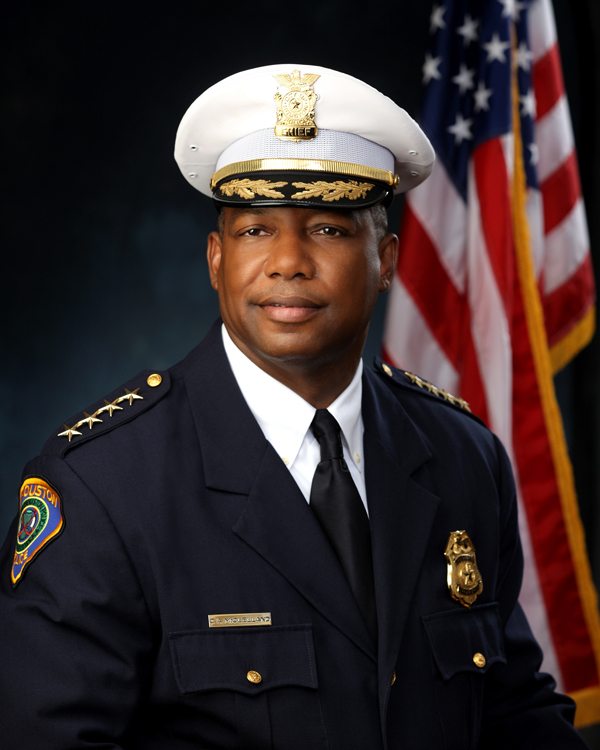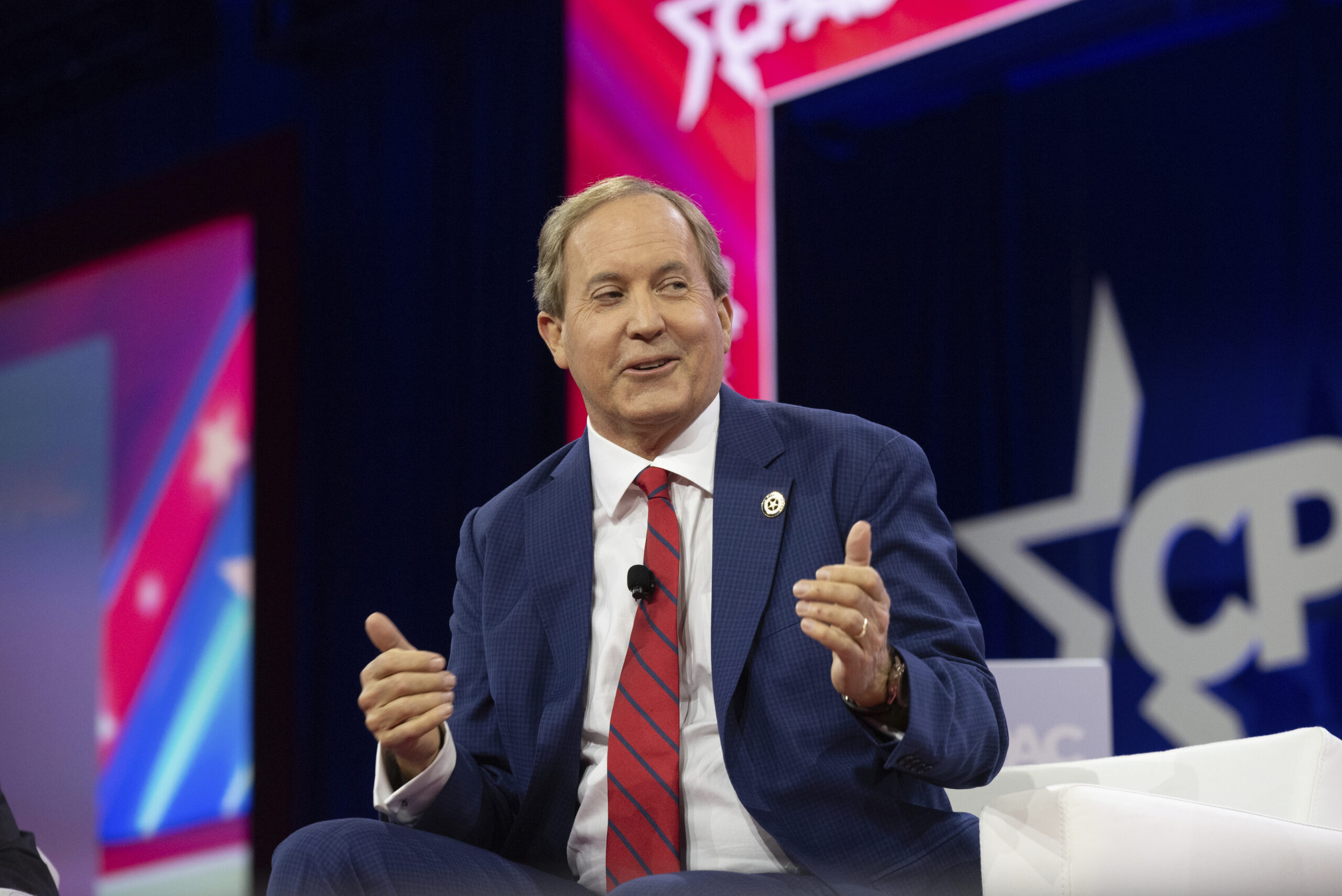
Houston Police Dept. Plagued By Fresh Scandal, Old Denial
Above: HPD Chief Charles McClelland
The Houston Police Department has had a terrible year. For several months now, a parade of exposés has tromped forth from local media, documenting sundry bad acts and drawing fresh attention to HPD’s ineffective discipline system. In each case, HPD officials have claimed (predictably) that the misbehavior in question is rare and being punished appropriately and isn’t tolerated, etc. But a quick trip through the Observer’s HPD discipline files shows that’s not true.
Take the most recent scandal. Last week, HPD Chief Charles McClelland announced that prosecutors would dismiss more than 6,000 speeding tickets written by four officers under investigation for allegedly falsifying citations to earn overtime pay for testifying in court. That’s scandalous enough that Newser.com picked up the story, but it’s also nothing new for Houston. In 2012, four veteran HPD officers were found to have been pulling the same scheme for years, netting almost $1 million in overtime pay. Not one of those officers was fired.
Or look at the April report of two HPD lieutenants removed from duty for allegedly sexually harassing their female subordinates. “Swift action is taken every time on sexual harassment,” Ray Hunt, the president of the police officers’ union, told the Houston Chronicle.
But not really. In May 2008, officer Jaime Vera was suspended for 60 days (an extremely rare punishment) for what’s described in HPD documents as “a confrontation with his wife” that resulted in a police report. Vera also had to sign a “Last Chance Agreement,” stating he understood and accepted that if he committed even the most minor infraction, he’d be fired. Then, in August, Vera was suspended for 15 days for sexually harassing a fellow female officer, including leaving his beat while on duty to continue harassing her. Why wasn’t Vera fired as the agreement said he would be? Because he had committed sexual harassment prior to May—that is, before signing the agreement. Not exactly swift, nor just. Vera was eventually fired for trying to pay off mechanics to pass the inspection of his flawed car.
As for the two HPD lieutenants suspended for harassment, both of them (ages 50 and 55) were allowed to retire and keep their pensions of more than $85,000 a year.
Probably the most serious recent scandal is the case of Ryan Chandler, one of eight HPD detectives disciplined in April for failing to properly investigate more than two dozen homicides including the shooting death of an 11-month-old girl. HPD Internal Affairs, reported the Chronicle, “revealed investigators and supervisors shirking the most basic requirements of police work: failing to show up at crime scenes, misplacing key evidence, not attempting to interview witnesses or follow up on tips.”
This behavior will sound familiar to Observer readers who caught our investigation of the HPD discipline system last year. We showed that cops who abandoned crime scenes, ignored victims, lost evidence, lied to superiors, forged signatures, stalked their exes and sexually harassed coworkers kept their jobs.
In large part, this was (and is) because the HPD discipline process has a built-in escape hatch at the end: arbitration. Any suspension of three days or more—including indefinite suspension, aka getting fired—is automatically eligible for binding arbitration by an outside party. That means after a labyrinthine six-month internal affairs investigation, if the complaint against you is one of the mere 7 percent that result in a serious punishment, an outsider will review it over a couple of days and can change it.
And change they do. An Observer analysis found that in two-thirds of the cases, arbitrators reduce an officer’s punishment or overturn it completely. The police chief can fire a bad cop, but he can’t make sure he stays fired.
Chandler, the detective responsible for 16 of the neglected homicides and the only officer fired in the scandal, is trying to get his job back. An arbitrator heard his case earlier this month and has months to decide on a ruling. Meanwhile, convictions for serious crimes that Chandler helped investigate may be jeopardized because one of the many violations HPD determined that Chandler committed was lying.
At the arbitration hearing, Chief McClelland said that was the bottom line for why Chandler should not return to the force. But the arbitrator may not agree with him.
In 2008, Officer Cynthia Marino lied under oath about a controlled drug buy, got fired, and was reinstated by an arbitrator.
In 2010, Officer Carlos Lerma was fired for repeatedly lying about the presence of a second officer at controlled drug buys, including forging another officer’s signature. He was also reinstated with just a 15-day suspension, already served. Like all officers returned to the force by arbitrators, Lerma received back pay for the period he spent fired.
In 2000, Sr. Police Officer Joseph Brashier was suspended for four days for lying and misconduct but kept his job. In 2008, he was suspended for 90 days for, among other things, repeatedly stalking and harassing his estranged wife for months in violation of a restraining order. Still, he kept his job. (There were several other incidents over the years, but these are the highlights.) Finally in 2010 Brashier was fired over an apparent illegal towing scheme. But an arbitrator reinstated him with just a 10-day suspension.
Clearly, HPD is ripe for reform, and Chief McClelland has been more active and open than his predecessors about trying to combat police misconduct. For example, he recently announced plans to equip 3,500 officers with body cameras over the next three years. But while individual (or clusters of) bad actors can be chalked up to scale—HPD does have about 5,400 officers, after all—a system that tolerates and retains and even hires them back, sometimes with a nice cash bonus, cannot. HPD has a discipline problem. What will it take to admit it?


